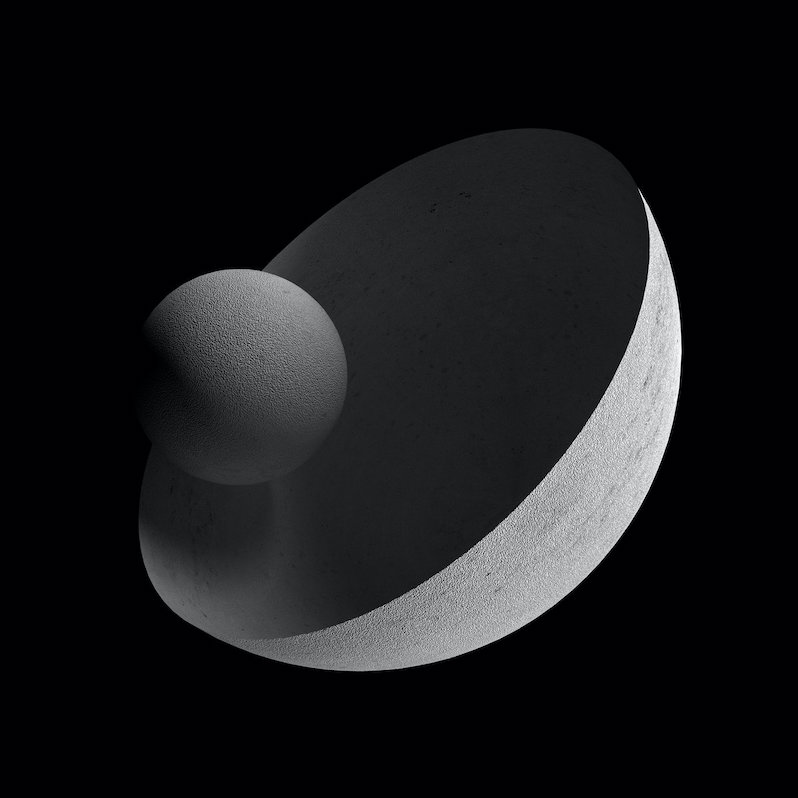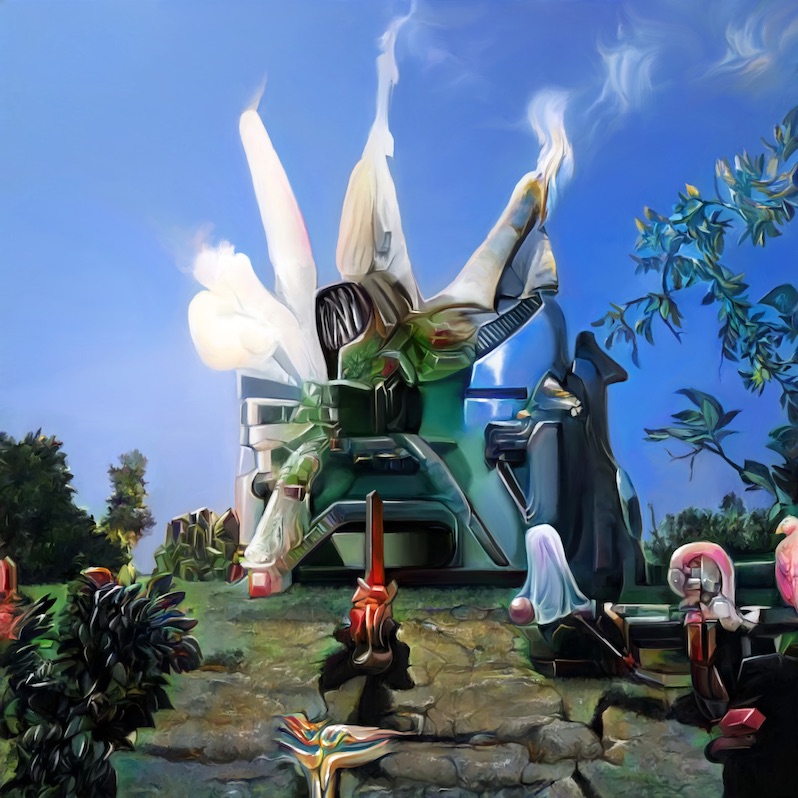JB Dunckel : Carbon

Composer/producer JB Dunckel has been fascinated with outer realms for some time. A core architect of the exploratory French pop duo Air alongside Nicolas Godin, Dunckel has rendered all sorts of faraway worlds across six albums through the ‘90s and ‘00s. Even when taking on grander concepts or soundtrack work, the pair’s sound remained distinct and ethereal. For all its spaciness though, their tableaus are rooted not exclusively in imagined realms, but often in everyday locales: “Left Bank,” “People in the City,” “Alone in Kyoto.” Air’s songs were as dreamy as they were tangible, fantasies within reach.
Though Air seems to have taken a pause for the time being, the duo’s split-screen ambitions—finding wonder here on Earth, and articulating the abstractions that define our place in the cosmos—remain at the core of Dunckel’s solo work too, even years later. He’s got an admirable work ethic and an uncapped creative optimism, ever the diligent voyager. But whereas the music of Air felt pure and untouched—almost hermetically beautiful—Dunckel’s latest record, Carbon, displays a few more blemishes. The tracks on Carbon are still synthetic, tightly-wound, often exquisite. But you can feel and hear Dunckel’s machinations more openly—imperfect dents notched deliberately into an otherwise sleek frame.
Put more bluntly, Carbon is the work of someone who has become a skeptic. Led by darker takes and an urgency that arose during the pandemic crisis, Carbon is tinged by personal notes of sadness, sometimes even derision. Once upon a time, Dunckel framed the cosmos with Air as a place to go “Surfing on a Rocket”; on “Space,” one of Carbon’s graceful Side A highlights featuring Au Revoir Simone’s Heather D’Angelo, the outer world becomes a void, beautiful to behold but oppressive too. “Zombie Park” is similarly melancholic, a reflection on a darker world that’s much closer to home: a recently-cleared homeless encampment near Dunckel’s apartment in Paris. The song is a kind of earnest offering of goodwill to fellow neighbors, tinged with some kind of guilt at a remove. Similarly, even “Shogun”—inspired, in a curious tangent, by the dress of Japanese emperors past—feels elegant but also twitchily nervous, bowed in quiet humility.
Elsewhere on the record, a pair of Dunckel’s biggest numbers careen off the deep end. “Sex UFO” purports to be inspired by Jeff Bezos’ phallic rocket launches; but in the context of Carbon’s overall fluid beauty, the track feels more Flight of the Conchords than Ziggy Stardust, and it’s unclear what Dunckel draws from the airborne phenom besides some mild bemusement. Similarly, “Dare” features a pair of text-to-voice-generated robots, spewing lascivious boasts (“We’ve got so much dirty love to give/we play dirty… oh yeah, we play dirty”) and vague platitudes (“Dare to be more hope…/Dare to be more hope, for the better”) atop dance breaks that straight-up resemble Nelly Furtado & Timbaland’s “Promiscuous.” Dunckel is clearly having fun, charmingly dismantling his own self-seriousness. But it feels crude and misplaced when compared to some of Dunckel’s wiser, or at least more directly personal, statements.
Carbon’s threads come together compellingly on “Corporate Sunset,” the album’s banger of a lead single. The instrumental feels like the soundtrack to a long-lost EPCOT pavilion: exploding in small bursts of adventure and color, led by a mellifluous, wordless vocal lead, humming along with unceasing escalator energy. When the song’s head-bobbing B-section hits, it’s easy to envision an epic camera-swoop to a big bird’s eye view—people-watching as humanity roves below in branded garden plazas, exploring attractions that pay tribute the wonders of nature, at the height of a grossly humid, grossly beautiful golden hour. This might seem to be a mundane scene, or a dig, to some. But Dunckel’s intricate dichotomies on Carbon feels oddly attuned to something like Future World’s big amusement park weirdness: its irreverence and scale; its hyper-specific fascination with corporate-led futures; its commitment to wonderment. (Indeed, Dunckel sees the record and its title as a kind of naive, broad-based tribute to Science: “[Carbon] is an admiration for scientific things in general.”)
In spite of his personal protestations, Carbon’s prevailing mode ends up being a kind of reluctant optimism, finding equal ballast in distilled sounds, natural elements and designed environments. There’s a whole legacy of synthesizer wizards, many of whom also worked as producers or film composers, who’ve followed this sort of willfully blissful lead too: Hugh Montenegro, Jean-Jacques Perrey, Mort Garson. Carbon feels less fanciful than those predecessors’ pop electronica experiments, maybe more quotidian by design. But Dunckel at least shares the same core ambitions, keeping the spark alight.
Label: Prototyp
Year: 2022
Similar Albums:
Ben Easton is a writer and musician based in Brooklyn, NY. He's a member/producer of the rock quartet The Academy Blues Project, with whom he has made six records, and plays Live Piano Karaoke in-residence at Sid Gold's Request Room, New York City's flagship modern piano bar. Beyond Treble, Easton is a staff writer at Cover Me Songs, the web publication devoted to cover music of all genres.




